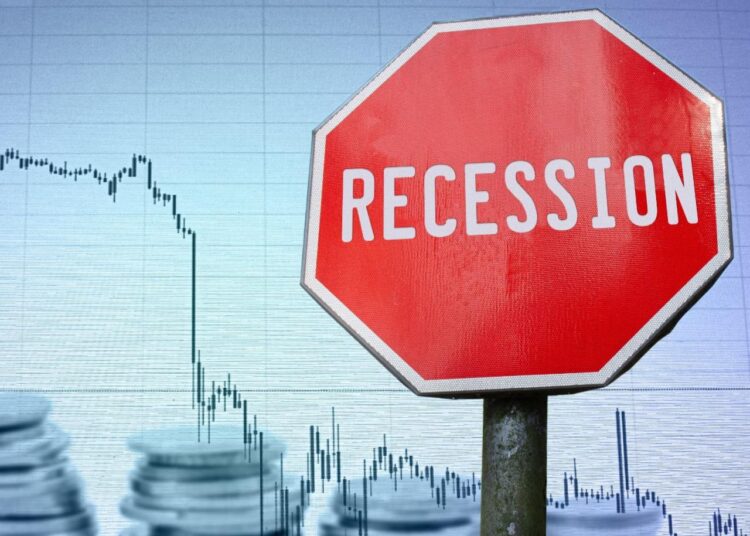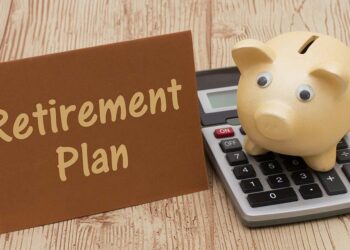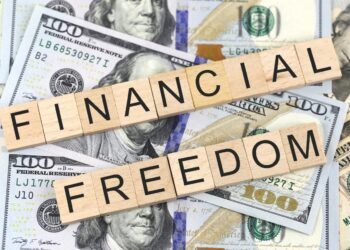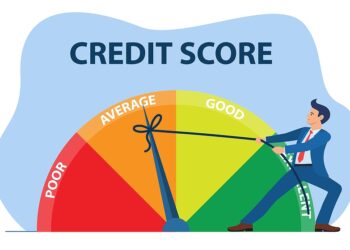The word “recession” often sparks anxiety, conjuring images of job losses, shrinking investments, and economic hardship. While recessions are a natural, albeit unwelcome, part of the economic cycle, they don’t have to be a source of panic. For many, a downturn simply highlights existing financial vulnerabilities. For others, it presents an opportunity to solidify their financial foundations and emerge stronger. The key isn’t to fear a recession, but to prepare for it. This proactive approach, often termed “recession-proofing” your finances, involves strategic planning and disciplined execution that can protect your wealth and even create opportunities during challenging times.
This comprehensive article serves as your essential guide to building financial resilience against economic downturns. We’ll meticulously explore what a recession entails, delve into its potential impacts on your personal finances, and, most importantly, equip you with a robust arsenal of actionable strategies across various financial domains. From fortifying your emergency fund to optimizing investments and safeguarding your career, these insights will empower you to navigate economic turbulence with confidence and emerge on the other side with your financial well-being intact.
Understanding the Economic Downturn
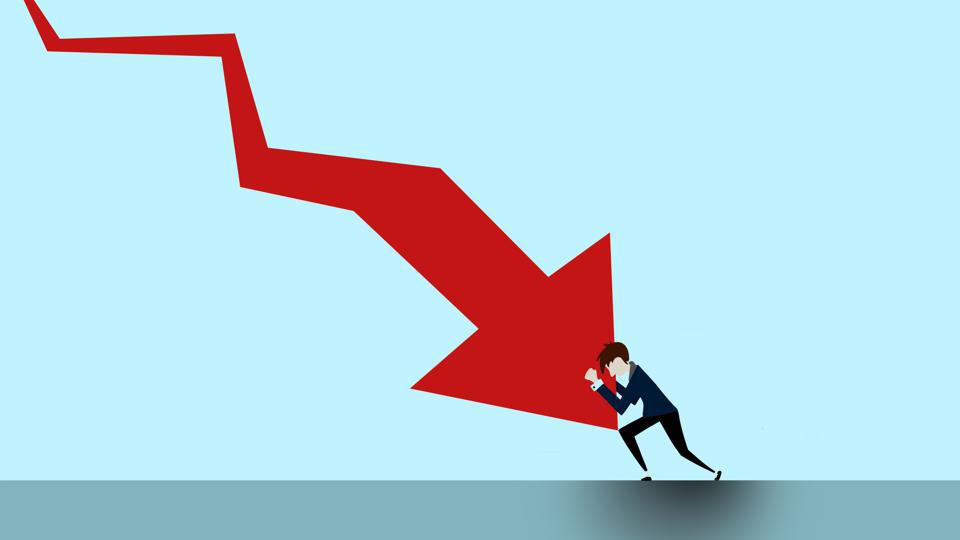
To effectively recession-proof your finances, it’s crucial to understand what a recession actually is and how it’s typically identified.
A. Defining a Recession
In simple terms, a recession is a significant decline in general economic activity, spread across the economy and lasting more than a few months. While there’s no single, universally agreed-upon definition, the most commonly cited benchmark is two consecutive quarters of negative Gross Domestic Product (GDP) growth.
However, other indicators are also closely monitored by economists and policymakers, including:
- Industrial Production: A sustained decline in manufacturing output.
- Employment: Rising unemployment rates and significant job losses across multiple sectors.
- Real Income: A fall in income adjusted for inflation.
- Wholesale-Retail Sales: A drop in sales volumes.
The National Bureau of Economic Research (NBER) in the United States, for instance, officially declares the beginning and end of recessions, considering a broader range of economic indicators beyond just GDP.
B. Causes of Recessions
Recessions don’t just happen; they’re often the result of a combination of factors that disrupt economic equilibrium.
- Excessive Debt: Both household and corporate debt, when too high, can lead to defaults, credit crunches, and reduced spending.
- Asset Bubbles Bursting: When speculative bubbles in asset classes like housing or tech stocks burst, it can trigger a sharp decline in wealth and consumer confidence.
- High Interest Rates: Central banks raise interest rates to combat inflation. While necessary, excessively high rates can stifle borrowing, investment, and economic growth, potentially leading to a slowdown.
- Deflationary Spiral: Although less common, a persistent fall in prices (deflation) can lead to reduced consumer spending (as people wait for lower prices), lower profits for businesses, and job cuts, creating a downward spiral.
- Sudden Shocks: Unexpected events like pandemics (e.g., COVID-19), major natural disasters, or geopolitical crises (e.g., oil price shocks) can suddenly halt economic activity.
- Reduced Consumer Confidence: If consumers fear a downturn, they tend to reduce spending and increase savings, which can slow down the economy further.
- Overproduction/Underconsumption: Industries may produce more goods than consumers are willing or able to buy, leading to unsold inventory, production cuts, and layoffs.
C. The Economic Cycle
Recessions are a part of the broader economic cycle, which consists of four phases:
- Expansion: A period of economic growth, rising employment, and increasing consumer demand.
- Peak: The highest point of economic activity before a downturn begins.
- Contraction (Recession): A period of economic decline, falling GDP, and rising unemployment.
- Trough: The lowest point of economic activity before recovery begins.
- Recovery: The period where the economy starts to grow again, often characterized by increasing employment and consumer confidence.
Understanding this cycle helps put recessions into perspective as a recurring, though challenging, phase rather than an end-of-the-world scenario.
The Personal Impact
While recessions impact the macro economy, their effects are deeply felt at the individual and household level. Being aware of these potential impacts allows for targeted preparation.
A. Job Security and Income
This is often the most immediate and significant concern for individuals.
- Increased Unemployment Risk: Businesses face reduced demand and may respond by slowing hiring, implementing hiring freezes, or, in severe cases, laying off employees to cut costs.
- Reduced Income: Even if you retain your job, you might face reduced hours, frozen salaries, or delayed promotions. Bonuses might be cut or eliminated.
- Difficulty Finding New Employment: For those who lose their jobs, the job market becomes highly competitive, and finding new employment can be a prolonged and challenging process.
- Impact on Side Gigs/Freelance Work: Demand for freelance services or side hustles can also decline as businesses tighten their budgets.
B. Investments and Savings
Your financial assets are also directly affected by a downturn.
- Market Volatility: Stock markets typically experience significant downturns during recessions as corporate earnings decline and investor confidence wanes.
- Reduced Investment Returns: Your investment portfolio, particularly in equities, will likely see its value decrease.
- Impact on Retirement Funds: Retirement accounts like 401(k)s and IRAs, often heavily invested in stocks, will see their values drop, potentially impacting your retirement timeline.
- Lower Interest Rates on Savings: In an effort to stimulate the economy, central banks often lower interest rates during recessions, meaning your savings accounts and CDs will yield even less.
C. Debt and Credit
Managing debt becomes even more critical during a recession.
- Increased Difficulty with Payments: If your income decreases or disappears, making loan payments (mortgage, car, credit card) becomes challenging, risking default and damage to your credit score.
- Tighter Lending Standards: Banks become more cautious during recessions, making it harder to obtain new loans or refinance existing ones, even with good credit.
- Higher Interest Rates on Variable Debt: While central banks may lower benchmark rates, some variable-rate debts might still become more expensive if the underlying spread widens due to heightened risk perception.
D. Consumer Spending and Prices
While inflation typically slows during recessions (and some prices may even fall), consumer spending patterns shift significantly.
- Reduced Spending: Consumers become more cautious, prioritizing essential goods and services and cutting back on discretionary spending.
- Deflationary Pressures (Sometimes): In severe recessions, there can even be periods of deflation, where prices generally fall, which can sound good but often signals a deep economic contraction.
E. Psychological Impact
The financial stress of a recession can take a toll on mental well-being.
- Increased Stress and Anxiety: Concerns about job security, declining investments, and financial instability can lead to significant stress.
- Mental Health Challenges: Prolonged financial hardship can contribute to depression, anxiety, and other mental health issues.
- Relationship Strain: Financial stress can put a strain on family and personal relationships.
Recession-Proofing Your Finances

The good news is that with thoughtful planning and disciplined execution, you can significantly mitigate the negative impacts of a recession and even find opportunities.
A. Fortifying Your Emergency Fund
This is the cornerstone of recession preparedness.
- Build a Robust Cash Reserve: Aim for at least 6-12 months of essential living expenses in an easily accessible, liquid account. This fund is your first line of defense against job loss or unexpected expenses.
- High-Yield Savings Accounts (HYSAs): Store your emergency fund in an HYSA to earn a modest return while keeping it liquid.
- Money Market Accounts: Another option for slightly higher yields than HYSAs, typically offering check-writing privileges.
- Automate Savings: Set up automatic transfers to your emergency fund account to ensure consistent contributions.
- Assess Expenses Realistically: Understand your true essential monthly outgoings – rent/mortgage, utilities, food, transportation, basic insurance.
B. Managing Debt Strategically
Your approach to debt needs to be proactive.
- Prioritize High-Interest Debt: Focus on paying down high-interest consumer debt like credit card balances first. These debts are expensive and can quickly snowball if income decreases.
- Consolidate Debt: If you have multiple high-interest debts, consider debt consolidation to simplify payments and potentially secure a lower interest rate (but be wary of fees and terms).
- Refinance Mortgages (if rates drop): If you have a variable-rate mortgage and interest rates begin to fall, consider refinancing to a fixed-rate loan to lock in lower payments and predictability.
- Avoid New Unnecessary Debt: During uncertain times, resist the temptation to take on new debt, especially for depreciating assets.
- Create a Debt Repayment Plan: Have a clear strategy for attacking your debts, even if it’s just paying slightly more than the minimums on high-interest accounts.
C. Optimizing Your Investments for Resilience
Recessions are often challenging for portfolios, but smart positioning can make a difference.
- Review Your Asset Allocation: Ensure your portfolio aligns with your risk tolerance and long-term goals. Consider a slightly more conservative allocation if a recession is looming, but avoid panic selling.
- Diversify Broadly: Ensure you’re diversified across different asset classes (stocks, bonds, real estate, commodities), geographies, and sectors. This helps cushion the blow if one area performs poorly.
- Focus on Quality Equities:
- Blue-Chip Stocks: Companies with strong balance sheets, established market positions, consistent earnings, and a history of weathering downturns.
- Dividend Aristocrats/Kings: Companies with a long history of consistently paying and increasing dividends, which can provide a valuable income stream during volatile times.
- Defensive Sectors: Companies in sectors like utilities, consumer staples, and healthcare often perform relatively well during recessions because demand for their products/services remains stable.
- Consider Bonds (Especially Government Bonds):
- High-Quality Bonds: Government bonds (like U.S. Treasuries) and highly-rated corporate bonds can act as a safe haven, often gaining value when stocks fall.
- Short-Duration Bonds: Less sensitive to interest rate changes, which can be beneficial if interest rates are expected to rise before falling during a recession.
- Dollar-Cost Averaging: Continue to invest a fixed amount regularly, regardless of market fluctuations. This prevents you from trying to “time the market” and ensures you buy more shares when prices are low.
- Tax-Loss Harvesting: If your investments are down, you might be able to sell losing investments to offset capital gains and even a limited amount of ordinary income, then reinvest in similar (but not identical) assets.
- Avoid Panic Selling: Selling investments during a market downturn locks in your losses. Historically, markets recover, and patient investors often see their portfolios rebound.
D. Securing and Diversifying Your Income Stream
Your ability to earn is your most valuable asset.
- Upskill and Reskill: Continuously acquire new skills, especially those in demand or recession-resistant industries (e.g., healthcare, cybersecurity, IT support, essential services). This makes you more valuable to your current employer and more marketable if you need to find a new job.
- Build a Professional Network: Nurture your professional connections. Networking can be invaluable for job opportunities, mentorship, and staying informed about industry trends.
- Cultivate a Side Hustle: Even a small side income can provide a crucial buffer if your primary job is impacted. This could be freelance work, consulting, or selling goods/services.
- Negotiate Your Value: If your company is doing well, advocate for salary increases to stay ahead of inflation and demonstrate your worth.
- Review Your Employment Contract: Understand your severance package, notice period, and any non-compete clauses.
E. Strategic Budgeting and Expense Control
Even with savings, a tight budget is your best friend.
- Create a Detailed Budget: Track every dollar coming in and going out. Use budgeting apps or spreadsheets to gain a clear picture of your spending habits.
- Identify and Cut Discretionary Spending: Ruthlessly cut back on non-essential expenses like dining out, entertainment, subscriptions you don’t use, and luxury purchases.
- Reduce Essential Costs: Look for ways to lower recurring bills:
- Negotiate Services: Call your internet, cable, and insurance providers to negotiate better rates.
- Shop Around for Insurance: Get quotes from multiple providers for home, auto, and health insurance.
- Energy Efficiency: Implement energy-saving measures in your home (e.g., LED lights, smart thermostat, sealing drafts).
- Meal Planning: Plan meals, buy groceries in bulk (when practical), and minimize food waste.
- Delay Major Purchases: If possible, postpone significant expenses like a new car, home renovations, or lavish vacations until economic certainty returns.
- “Recession Budget” Practice Run: Practice living on a leaner budget for a month or two to understand where you can realistically cut back if needed.
F. Health and Wellness Protection
Don’t overlook the importance of your health during a recession.
- Maintain Health Insurance: Losing health insurance during a job loss can be financially devastating. Understand your options (e.g., COBRA, ACA marketplace, spouse’s plan) if you become unemployed.
- Prioritize Physical and Mental Health: Stress during a recession can impact your well-being. Ensure you maintain healthy habits (exercise, good diet, sleep) and seek support if mental health struggles arise.
G. Understanding Government and Community Resources
Know where to turn for help if necessary.
- Unemployment Benefits: Understand the eligibility criteria and application process for unemployment insurance in your region.
- Government Aid Programs: Be aware of any government assistance programs (e.g., food assistance, housing aid) that may become available during a recession.
- Community Resources: Local charities, food banks, and non-profits often provide support during economic hardship.
- Debt Counseling Services: Non-profit credit counseling agencies can offer guidance on managing debt and negotiating with creditors.
Finding Opportunities in a Downturn
While much of recession-proofing focuses on defense, savvy individuals can also find unique opportunities during economic contractions.
A. Discounted Investments
Market downturns, while painful, offer a chance to buy quality assets at lower prices.
- “Buy the Dip”: For long-term investors, a recession can be an excellent time to invest in strong companies or broad market index funds at discounted valuations.
- Dollar-Cost Averaging Benefits: Your consistent investments during a downturn will buy more shares, setting you up for greater gains when the market recovers.
B. Real Estate Opportunities
Recessions can create unique conditions in the housing market.
- Lower Home Prices: In some areas, home prices may decline, creating opportunities for first-time homebuyers or those looking to upgrade at a lower cost (assuming you have stable employment and can secure financing).
- Favorable Mortgage Rates: Central banks often cut interest rates during recessions, which can lead to lower mortgage rates, making homeownership more affordable.
- Investment Properties: For experienced investors, a downturn might present opportunities to acquire rental properties at attractive prices.
C. Skill Acquisition and Career Pivots
A recession can be a catalyst for personal and professional growth.
- Investing in Education: Use any potential downtime to acquire new skills, pursue certifications, or even go back to school. This can make you more competitive in the post-recession job market.
- Exploring New Industries: Some industries are more recession-resistant than others. A downturn might prompt you to consider a career pivot to a more stable sector.
- Entrepreneurial Opportunities: Economic shifts can create new needs and market gaps. Some successful businesses were founded during recessions, identifying unmet demands.
D. Refinancing Opportunities
Lower interest rates during a recession can be a boon for existing debt.
- Mortgage Refinancing: If interest rates fall, refinancing your mortgage can significantly reduce your monthly payments and the total interest paid over the life of the loan.
- Debt Consolidation: Lower rates might make debt consolidation more attractive, allowing you to roll multiple high-interest debts into a single, lower-rate loan.
Conclusion
Recessions are an inevitable part of the economic cycle, but their impact on your personal finances is largely within your control. The concept of recession-proofing your finances isn’t about predicting the next downturn; it’s about building a robust, resilient financial framework that can withstand economic shocks and even identify opportunities.
By meticulously fortifying your emergency fund, strategically managing your debt, optimizing your investments for stability and growth, diversifying your income streams, and maintaining a disciplined budget, you equip yourself with the tools to navigate any economic turbulence. Remember, financial resilience isn’t built overnight; it’s a continuous process of informed decisions and consistent effort.
Embrace the mindset of proactive preparation, and you’ll find that instead of being a victim of economic downturns, you can emerge from them financially stronger, more secure, and better prepared for whatever the future holds. The time to prepare for a recession is not when it hits, but now.

